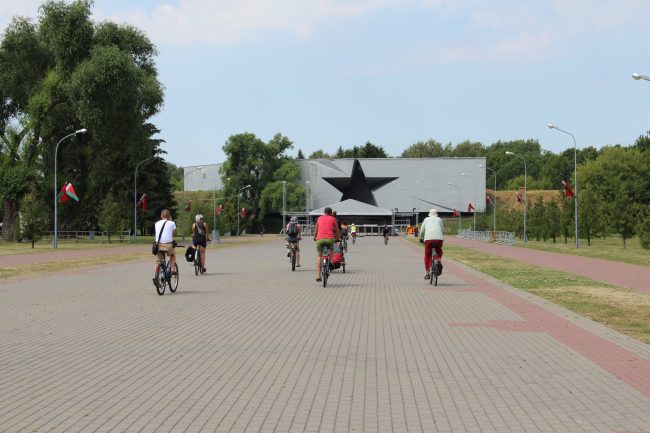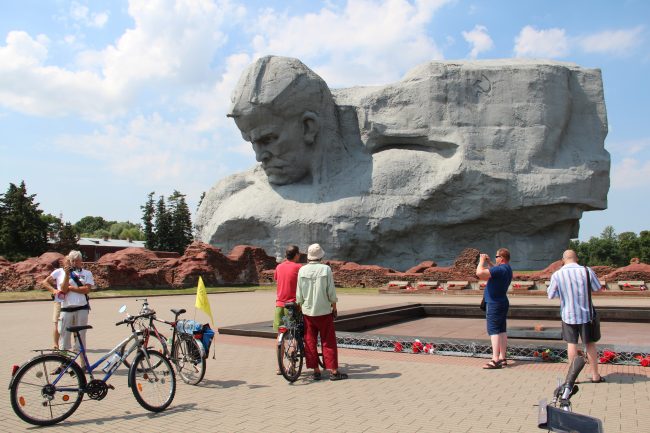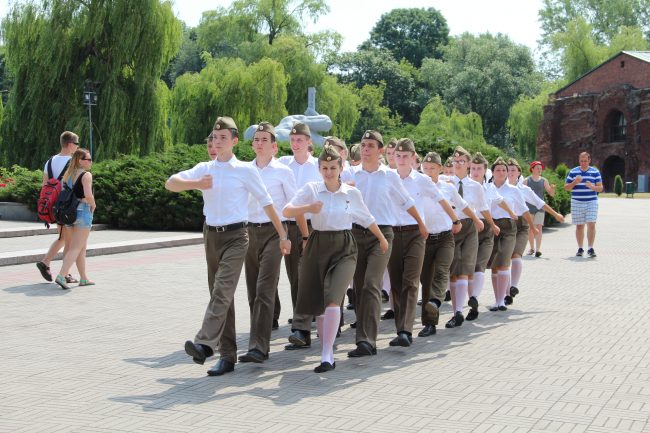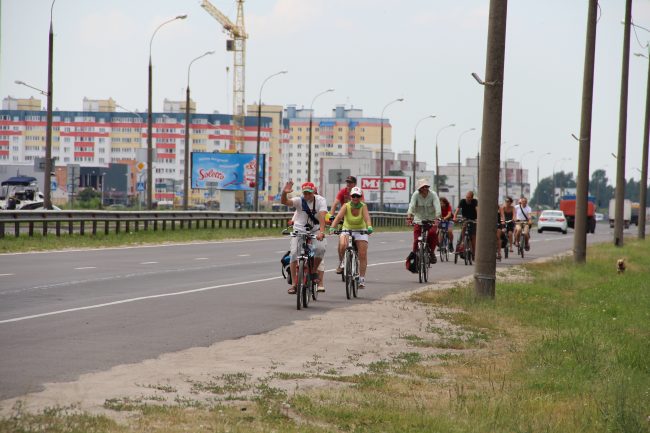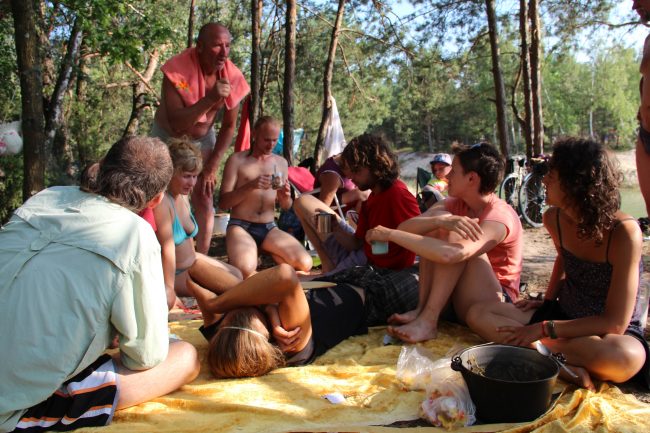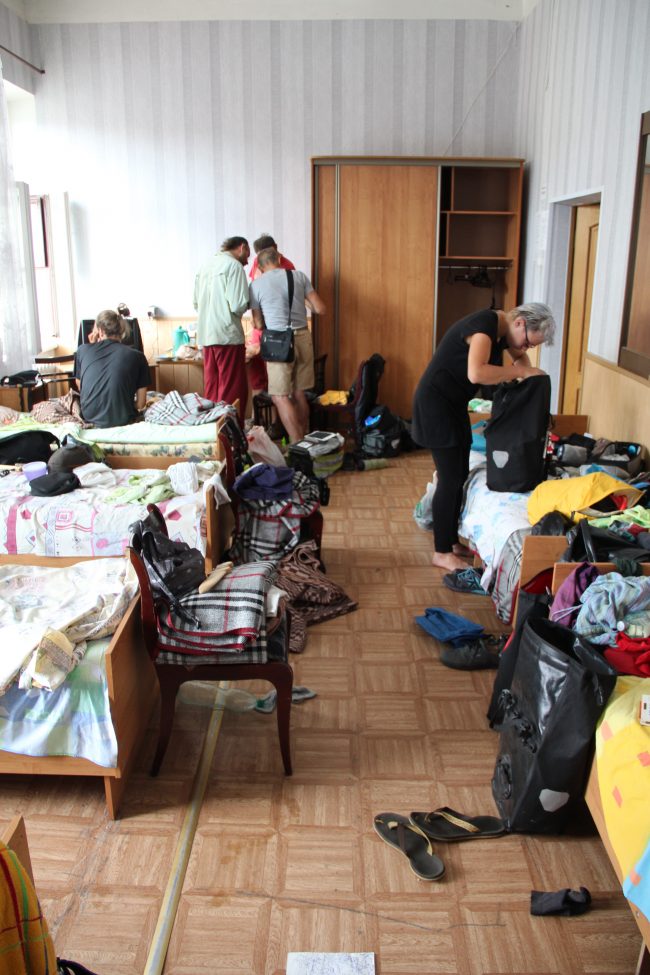After so many fails, we couldn’t believe it when the bus started going and actually took us into Belarus. At the bus stop we were already awaited by Valentin from Radeja Bike Club, with whom we had been in a lot of contact with to prepare the documents for the visa application.
Valentin was over-excited to lead us through the city, and communication was a bit difficult, as he only speaks Russian. With Radeja Bike Club, he has been organizing long-distance bicycle tours in many countries, including western-European ones like Spain, and camps for people with disabilities in the forest, where they could learn how to survive in the nature.
On the first evening, we had a meeting with people from different organizations, to introduce ourselves and hear about their work. Among them was Kryly Khalopa Theatre (“free theatre”), a group that tries to express a critical view on society using theatre. Recently, they have been successfully performing their play “Chernobyl”, based on real stories of people who experienced the explosion of the nuclear power station. Another organization was Ecodom, an NGO focused on educational and cultural activities in the areas of environment, human health and sustainable development.
It seemed like we were the biggest attraction in the whole city. Everywhere we went, people were staring at us, as if they had never seen a group of cyclists before, particularly not with a lot of luggage, trailers, and even a dog in a trailer. Even when we were without bikes, us dirty travelers were quite noticeable in this country where everything and everyone is so well-groomed and clean. Already speaking a foreign language was something so exceptional in this town right on the border that is so hard to cross.
In Belarus, it is compulsory to cycle on the sidewalk when there is one. The local people seemed to be really anxious to cycle on the road, except when cycling in a big group all closely behind each other. It was not really clear whether this was because of the police or the cars. To us, the car drivers were really polite and giving us a lot of space and time, but this might be because of our exceptional appearance.
On the next day, Valentin took us for a tour to the major sights of Brest, which ended next to some lakes outside of the city, where we met some of his friends, who prepared some traditional food for us on the campfire. We had loads of questions about the political situation in Belarus, and learnt that there is a really big difference between the older generation, who seems to be quite nostalgic about soviet times and not very critical about the president, and the younger generation that is very west-oriented. Apparently one major part of how the Belarusian national identity is constructed is the victory over the Nazis, even still nowadays among young people.
We hung out quite a lot with the (younger generation) people of the different organizations and their friends. Some of them had been traveling a lot in western Europe and thus spoke good English (it seems like it is much easier for young Belarusians to get into western Europe than it was for us to get into Belarus), others didn’t speak English at all, but all of them seemed to have values and a lifestyle much more similar to us than one would expect with such a border in between.






